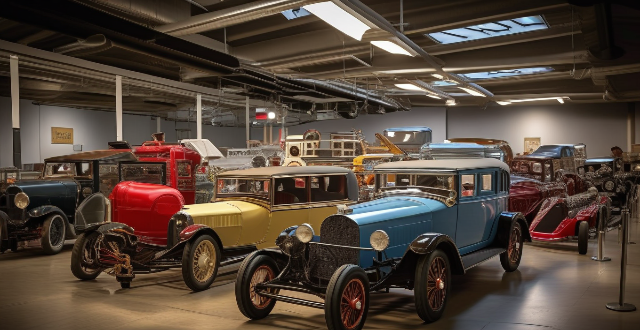The history of the automobile spans over a century and involves numerous inventors, engineers, and entrepreneurs. It begins with the development of steam-powered vehicles in the late 18th century and culminates in the modern era of electric and autonomous vehicles. Key developments include the invention of the internal combustion engine by Nikolaus Otto in 1876, the introduction of the Ford Model T in 1908, and advancements in electric, autonomous, and hybrid technology. The future of automobiles is likely to involve further advancements in these areas as concerns about climate change and improvements in artificial intelligence continue to grow.

The History of the Automobile
The history of the automobile is a long and complex one, spanning over a century and involving numerous inventors, engineers, and entrepreneurs. It begins with the development of steam-powered vehicles in the late 18th century and culminates in the modern era of electric and autonomous vehicles.
Early Developments
The first self-propelled vehicle was invented by Nicolas-Joseph Cugnot in 1769. His fardier à vapeur (steam-powered road vehicle) could transport four passengers and military equipment. However, it was not until the mid-19th century that further advancements were made.
Steam-Powered Vehicles
In 1826, Samuel Morey built the first practical internal combustion engine, which used a mixture of hydrogen and oxygen as fuel. This led to the creation of steam-powered vehicles like the Stanley Steamer, which dominated the early automotive market.
Internal Combustion Engine
The invention of the internal combustion engine by Nikolaus Otto in 1876 revolutionized transportation. It was more efficient than steam engines and paved the way for modern cars.
Modern Era
The modern era of automobiles began with the introduction of the Ford Model T in 1908. This mass-produced vehicle made cars accessible to the average American family.
Key Developments
- Electric Cars: Although they were popular in the early 20th century, they fell out of favor due to limited range and high cost. They are now making a comeback with advancements in battery technology.
- Autonomous Vehicles: Self-driving cars are being developed by companies like Google's Waymo and Tesla. They use advanced sensors and machine learning algorithms to operate without human input.
- Hybrid Cars: These vehicles combine an internal combustion engine with an electric motor to improve fuel efficiency and reduce emissions.
Future Trends
The future of automobiles is likely to involve further advancements in electric and autonomous technology. As concerns about climate change continue to grow, there will be increased pressure on manufacturers to produce more environmentally friendly vehicles. Additionally, improvements in artificial intelligence will lead to even greater automation on our roads.